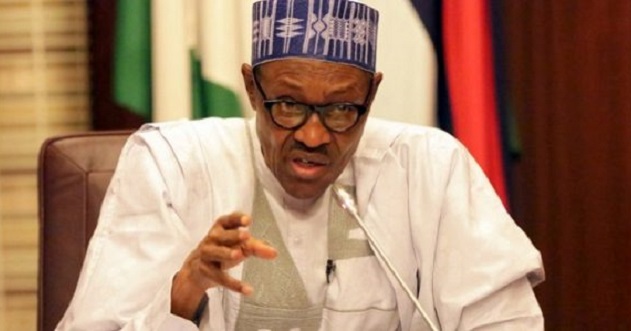Business
2018 BUDGET: Buhari to borrow $2.8bn Eurobonds, the fifth in 2 years

President Muhammadu Buhari on Tuesday wrote to the Senate seeking approval to raise $2.78 billion Eurobonds as part of the capital funding for the 2018 national budget, even as the nation’s external debt kept rising.
The Eurobond offering, which is the fifth in less than two years, is expected to be sourced from the International Capital Market.
An Eurobond is a special debt instrument issued in a currency different from the currency of the country or the market in which the bond is issued.
The latest demand of President Buhari would bring the total recent Eurobond offering to $9.78 billion, having obtained a total of $4.5 billion Eurobond in 2017 and another $2.5 billion Eurobond in February 2018.
The President of the Senate, Bukola Saraki, made Buhari’s intention known while reading the President’s letter at the plenary on Tuesday, the first sitting in more than two months after the National Assembly embarked on its annual recess which began on July 25.
According to the letter, the President wants the resolutions of the National Assembly to raise new external capital raising of $2.786 billion mainly to fund the N9.12 trillion 2018 budget signed into law on June 20, 2018.
The Senate President said Buhari also sought Senate approval for additional external capital raising of $82.54 million to refinance the balance of $500 million matured Eurobond in the international capital market.
Buhari said the requests were pursuant to Section 21(1) and 27(1) of the Debt Management Office (Establishment, Etc.) Act of 2003.
Read also: China, foreign loans draining Nigeria’s blood –Duke
In June, the Minister of Budget and National Planning, Sen. Udoma Udo Udoma, while making his presentation of the details of the 2018 Budget, said the federal government would raise N7.17 trillion to fund the N9.12 trillion budget, leaving an overall budget deficit of N1.95 trillion.
The minister added that the budget deficit would be financed mainly by borrowing N1.64 trillion of which N793 billion would be borrowed domestically while N849 billion would be borrowed from foreign sources.
Data obtained from the Debt Management Office (DMO) showed that the nation’s public external debt portfolio stood at $22.08 billion as of June 30, 2018, this implies that country’s external debt commitment has risen by over 114 percent in the last three years when it recorded $10.32 billion as of June 30, 2015.
According to the debt office, Nigeria’s commercial foreign loans, which stood at $1.5 billion as of June 30, 2015, had risen to $8.8 billion as of June 30 2018, indicating that in the last three years, the country’s exposure to commercial foreign loans has risen by 486.67 percent.
Nigeria’s incurred external debt from various multilateral organisations including a total of $3 billion from the World Bank; $1.32 billion from African Development Bank (AfDB); and diaspora loans amounting to $300 million.
RipplesNigeria… without borders, without fears
Click here to join the Ripples Nigeria WhatsApp group for latest updates.
Join the conversation
Support Ripples Nigeria, hold up solutions journalism
Balanced, fearless journalism driven by data comes at huge financial costs.
As a media platform, we hold leadership accountable and will not trade the right to press freedom and free speech for a piece of cake.
If you like what we do, and are ready to uphold solutions journalism, kindly donate to the Ripples Nigeria cause.
Your support would help to ensure that citizens and institutions continue to have free access to credible and reliable information for societal development.




























